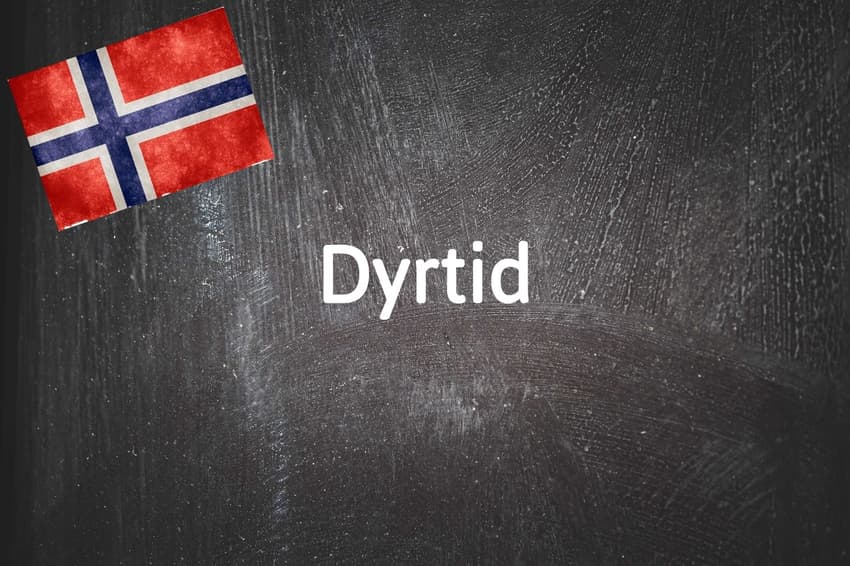Norwegian word of the day: Dyrtid

Prices are rising, and budgets are shrinking; the already expensive country of Norway has a word for such a time.
What does Dyrtid mean?
Directly translated, it means expensive times. The dyr is the Norwegian word for expensive. It is also the Norwegian word for animal. Although in this context, it would be strange for it to refer to an animal rather than prices.
The term refers to a period of high inflation, much like we find ourselves in now. The term dates back to the First World War.
It first appeared in 1917 when public servants were given an inflation allowance on top of their salaries. This was dropped when prices returned to normal during the 1920s.
During this period of high inflation, some 40,000 people protested outside the Norwegian parliament in June 1917.
The supplement was brought back in 1937, and the term was also used to describe a period of inflation after World War Two.
The word dyrtids (expensive times) was fairly widely used until the 1960s, but for a while fell out of common use.
Although it did see a small comeback in the 70s when it was used in relation to the arguments against joining the EEC (now the EU). One of the groups against joining was called Arbeiderkomiteen mot EEC og dyrtid (The Workers Committee Against the EEC and Dyrtid)
However, the word has seen a resurgence over the past year, with the Norwegian media using it to refer to the current period of high inflation in Norway. Price rises in the country have remained above estimates, and the CPI has inflation in Norway at 6.7 per cent.
Norway’s PM Jonas Gahr Støre helped to bring the word back to widespread use by using it in a parliamentary speech in October 2022.
Comments
See Also
What does Dyrtid mean?
Directly translated, it means expensive times. The dyr is the Norwegian word for expensive. It is also the Norwegian word for animal. Although in this context, it would be strange for it to refer to an animal rather than prices.
The term refers to a period of high inflation, much like we find ourselves in now. The term dates back to the First World War.
It first appeared in 1917 when public servants were given an inflation allowance on top of their salaries. This was dropped when prices returned to normal during the 1920s.
During this period of high inflation, some 40,000 people protested outside the Norwegian parliament in June 1917.
The supplement was brought back in 1937, and the term was also used to describe a period of inflation after World War Two.
The word dyrtids (expensive times) was fairly widely used until the 1960s, but for a while fell out of common use.
Although it did see a small comeback in the 70s when it was used in relation to the arguments against joining the EEC (now the EU). One of the groups against joining was called Arbeiderkomiteen mot EEC og dyrtid (The Workers Committee Against the EEC and Dyrtid)
However, the word has seen a resurgence over the past year, with the Norwegian media using it to refer to the current period of high inflation in Norway. Price rises in the country have remained above estimates, and the CPI has inflation in Norway at 6.7 per cent.
Norway’s PM Jonas Gahr Støre helped to bring the word back to widespread use by using it in a parliamentary speech in October 2022.
Join the conversation in our comments section below. Share your own views and experience and if you have a question or suggestion for our journalists then email us at [email protected].
Please keep comments civil, constructive and on topic – and make sure to read our terms of use before getting involved.
Please log in here to leave a comment.